Movie Review: Bleak Night
by javabeans
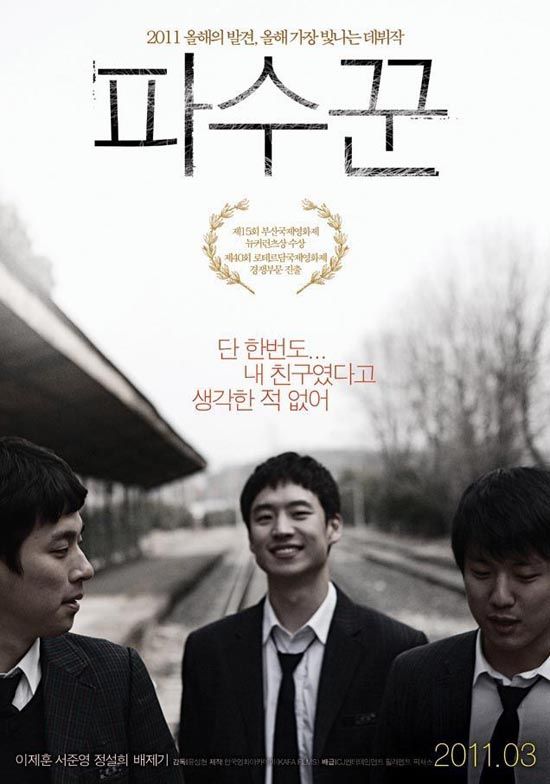
![]()
Bleak Night is a remarkable film. So remarkable that it has languished in my drafts folder for a year, for fear that the review wouldn’t do the film justice.
What finally spurred me to take it up again was the light bulb that went off in my head while watching KBS’s currently airing drama School 2013, which took me back emotionally to the experience of watching Bleak Night—similar in many ways, yet also worlds apart in spirit. It isn’t fair to compare the two directly against each other given their respective formats, so I don’t think of them in terms of one being better than the other, but perhaps they can be observed as unexpected companion pieces.
I love School 2013′s realism, but it’s realism bathed in an optimistic light: It takes the darkness of Bleak Night and promises you hope at the end of the tunnel. In that sense, School 2013 is a more enjoyable watch, but also the safer one. Not a criticism; it’s that hope for the future that makes the current trials and tribulations bearable.
Bleak Night, on the other hand, is stark, stirring, bare-bones, and the most intensely moving thing I’ve seen in a long while.
SONG OF THE DAY
Amature Amplifier – “Monday Robot,” the song that closes the film. [ Download ]
Audio clip: Adobe Flash Player (version 9 or above) is required to play this audio clip. Download the latest version here. You also need to have JavaScript enabled in your browser.
Bleak Night unfolds amidst an air of mystery. A high school student is dead, and his father seeks to understand how it came about by approaching his son’s old friends for information. As he attempts to make sense of the fragmented picture, the present-day timeline progresses on a parallel track with several flashback threads: Time interweaves, cutting back and forth and picking up rhythm as clues are uncovered and the blank spots filled in.
As the film opens, high-rises line the skyline in austere similarity—a cold, unfamiliar Anycity. Long stretches of spare silence set the mood, which is decidedly stark, but the film slowly adds in a warmth that hits you all the harder for the knowledge that it is short-lived.
In order to discuss Bleak Night, giving away the identity of the dead boy is a necessity, and anybody who reads a review will know from the outset which student he is. Even so, try to wipe that knowledge from your mind as you watch the film dropping hints and possible misdirects, because the film’s deft hand with these clues adds a layer of suspense that is worth experiencing, for the way it puts your heart in your throat and your mind in a whirl.
A group of high school boys hang out, posture, befriend, and bully all without referring to anybody by name—is the dead Ki-tae that tall guy with the fierce eyes? The quiet, easygoing one? We suspect it may be that morose-looking victim even though he is called by a nickname, Baek-hee; his real name is withheld for several scenes yet.
But because some spoilers are necessary, the truth slowly comes into focus, subverting expectation when Ki-tae turns out not to be the aggressively bullied Baek-hee but the head bully (Lee Je-hoon, who is a revelation). Even more startling is the reveal that Ki-tae and Baek-hee (whose name is actually Hee-joon, played by Park Jung-min) were once best friends, along with a third schoolmate, Dong-yoon (Seo Joon-young).
Knowing who died won’t ruin the film, however, because the purpose of Bleak Night is not to root out the mystery of who it was but of how things came to be so broken. Above all, more than the whos and the whens are the whys. A scene of a gang of boys beating up one boy gives way to another scene, on another day, of that same boy smiling with his tormentor. How did this come to be?
One flashback thread drops us in the aftermath of the three boys’ fractured friendship, where Hee-joon is persistently harassed by classmates, with Ki-tae leading the charge. These scenes provide testimony to the lies that the boys tell the father in the present day, providing sharp contrast to their vague words about not really knowing what happened.
Then there’s the heartbreaking flashback thread that takes us farther back in time to when all three were inseparable—it’s this thread that all but crushes you because you know it will not last. Happiness seen through the lens of a grimmer future has a way of turning into tragedy.
As the movie progress, the earlier scenes come back and cycle around with new understanding. Thus each carefully laid segment, whether present-day or flashback, reveals something new and twists our perception of the situation in new directions.
Ki-tae’s father is played with quiet bafflement by Jo Sung-ha, who has woefully little to go on as he begins his quest for the truth. All he knows is that some boys crop up frequently in Ki-tae’s photos and came to his funeral. It becomes clear that his father knew very little of Ki-tae’s school personality, but it’s not something for which we can hold him to blame; there’s a clear delineation between how these boys behave with each other and how they act to the world.
We’re allowed intimate access into the closed-off world of these characters, all adolescent bravado and nonstop swearing and smoking in secret. Lest we assume the film depicts the lives of a fringe group of delinquents or a particularly virulent strain of high school bullies, we also see that the boys are perfectly capable of cleaning up and speaking respectfully to the world outside their circle. It may be this idea that is most unsettling, that such a group of well-mannered youngsters could be the very same who transform into a pack of vicious alpha dogs in the absence of outsiders.
The flashback strain that goes farthest back in time is the cheeriest, as the three boys spend most of their time with each other doing normal teenage things—goofing off, throwing a baseball around, talking a lot about nothing at all. It’s mundane, it’s heartwarming; it’s terrible that this is the story’s outset and not its conclusion.
The camaraderie continues through the group’s encounter with a trio of girls, with whom they arrange a group date. Perhaps that’s when the cracks form in the friendship, although it seems simplistic to assign the blame here. After all, it’s Ki-tae who tries the most to keep the buddies together when one of the girls breaks ranks and ditches Hee-joon to pursue him instead. He pointedly chooses his bro over the girl, but the passive Hee-joon seems to simmer in silence nonetheless. He’s not so small-minded that he holds this against Ki-tae… but he can’t say that it doesn’t bother him. Is this a cause of group discord, or merely a symptom?
Thus Hee-joon pulls back, and Ki-tae is left searching for a way to make amends. His efforts to smooth things over with his best friend provide a confusing contrast to the flashback thread that picks up some time afterward—once the glue of the trio, now Ki-tae has been named jjang (top dog) and never passes up an opportunity to pick on loner-like Hee-joon. And this is no grade-school-level of taunting, but a relentless assault of barbs and blows.
Ki-tae is cruel and menacing, so dogged in his persecution that it’s chilling. He displays an almost psychopathic charisma, whether he’s commanding his army of followers or speaking in soft, entreating tones that entice even as they set the hairs standing on the back of your neck, warning you not to be taken in.
Lee Je-hoon’s electric performance is pivotal to making Ki-tae, and the film as a whole, work. He is by turns villainous and victimized, and at times it’s difficult to distinguish which is the prevailing trait in his mind. Outwardly he’s the instigator, but he’s not without reason: When the tables first turn on Ki-tae and he finds himself the mocked one, he’s put on the defensive and the darker Ki-tae inside stirs. In a moment of rare vulnerability, he lets his guard down with Hee-joon and admits that he has no mother; a puzzle piece falls into place to understand that his offense is defense.
That he entrusts Hee-joon with such a guarded secret is proof of his faith in their bond, which goes a long way into explaining his hot-cold, love-hate reactions later. In the later bullying timeline, in between attacks Ki-tae displays a trace of the vulnerability of his flashback self—he apologizes for beating up Hee-joon and offers to put an end to their strife. You breathe a sigh of relief at the overture… until Hee-joon rejects him flatly, calling out Ki-tae for never thinking of him as friend in the first place. He says coldly that nobody is Ki-tae’s real friend, adding that he never was, either.
You fear for Hee-joon, and in the back of your mind perhaps you entertain the uncomfortable thought that it’s a good thing that Ki-tae died. But the flashes of the thoughtful, caring Ki-tae are never far from our minds, being skillfully woven into the main storyline so that it’s difficult not to explain away his behavior as misunderstood, misguided.
Yet there is a difficult truth that the film forces you to confront—it challenges you not to excuse him. Because truth be told, Ki-tae is a menace. He may be posturing out of fear, lashing out in pre-emptive strikes to hide the fact that he is the most susceptible to the adolescent taunts he dishes out, but he is also frightening and dangerous. At the end of the day he is his own worst enemy.
It is assumed, though not outright stated, that Ki-tae committed suicide. I appreciate Bleak Night’s subtle touch in doling out information—so much is said in what is not said. Strung taut with tension, the film lets us connect the dots ourselves, feeling the weight of the revelations as they land, rather than delivering them to us packaged perfectly with motive and interpretation wrapped up in a nice neat bow.
Dad’s inquiries not only provide a window into the past, they also kickstart the two surviving friends into action. Hee-joon, having transferred to a new school, starts looking for their third friend Dong-yoon, who’s been MIA. He appears to have moved on with his life, but he starts to revisit those days as he tries to make sense of it himself.
Dong-yoon offers the other side of the picture, showing us a guy who had the strength to stand up to his out-of-control friend. However, Ki-tae alienates Dong-yoon as well, and in the days leading up to Ki-tae’s presumed suicide Dong-yoon throws familiar words at him: That Ki-tae never had a single friend in his life.
You’d almost believe that were true—and Ki-tae’s response proves he believes it—if not for the scenes that cut in and around these moments, showing us the times when they did believe in that friendship. Immediately following that confrontation, we cut to one that took place farther in the past, back when they were friends. Their conversation is prescient; Ki-tae has been newly recognized as jjang and sighs that he knows it’s all over once they graduate. “But till it all goes away, I’ve got you, haven’t I?”
It is worth noting that the director—a new name, Yoon Sung-hyun, who has won a number of awards for Bleak Night, including a Blue Dragon and a Grand Bell—knits together this nonlinear narrative without use of captions to anchor each scene in “two months later” or “present time,” etc. Thus we are left to infer from the context which timeline we’re in. It sounds confusing, and it very well could be, but the story points are so clear that it never becomes a problem. The director displays the utmost skill in carrying along the emotional flow of the film despite the disjointed chronology.
In fact, the film wouldn’t really work in chronological order—not the way it does now, at least. That’s because Bleak Night isn’t about a plot-related payoff, necessarily. You’re given the outcome up front, and brought around to understanding. That’s what lends the film its poignancy—it doesn’t come from the events themselves, but in the way that understanding and truth are the true goal. The film makes you want to save them all, despite knowing one is destined not to be, but what it gives us isn’t salvation but insight.
In that sense this film, which loops around upon itself in a braid of time, is akin to a fragmented memory. We live our lives in a linear fashion, by the necessity of time, but the experience of living is not so neat a line. It can be fractured like memories or plaited together like locks of hair, the experiences wrapping over each other—they are part of a whole yet distinctly separate. We live our lives in the present while remembering something in the past concurrently.
Bleak Night draws upon a recurring motif of railroad tracks, often punctuated with the boys tossing around a baseball treasured by Ki-tae. The opening shot is kinetic and crowded, as a large crowd of schoolboys gang up on one victim. As the film progresses, however, the numbers decrease as we see Ki-tae with his friends in happier days, before he was crowned jjang. Funny that the thing he gave up to be the jjang was the thing least worth it in the end. That ties in to the title of the movie, unintentionally or not, which in Korean is the word for “lookout”; this may be the cautionary tale of what happens when friends fail as lookouts for one another.
The verdict: Bleak Night is stunning and stark, and captures a magnetic Lee Je-hoon. There’s bleakness, yes, but it’s not bleakness meant to make you miserable; it sets the scene for the silence to speak. It allows the unvarnished emotions to come alive to break your heart, and maybe punch you in the gut a little. It gets my highest recommendation, although you may need to take a moment or fifty to recover afterward. 10/10.
RELATED POSTS
- New season of Drama Special premieres with Sirius
- Lee Je-hoon reports for military service
- Lee Je-hoon suits up for Bazaar
- The ghostbusting cast of horror-comedy Fortune Tellers
- To the Beautiful You: Episode 1
- Lee Je-hoon and Han Seok-kyu as student-teacher pair
- Fashion King: Episode 1
- Movie Review: The Front Line
- Dark indie film Bleak Night earns raves
Tags: featured, Jo Sung-ha, Lee Je-hoon, Park Jung-min, Seo Joon-young
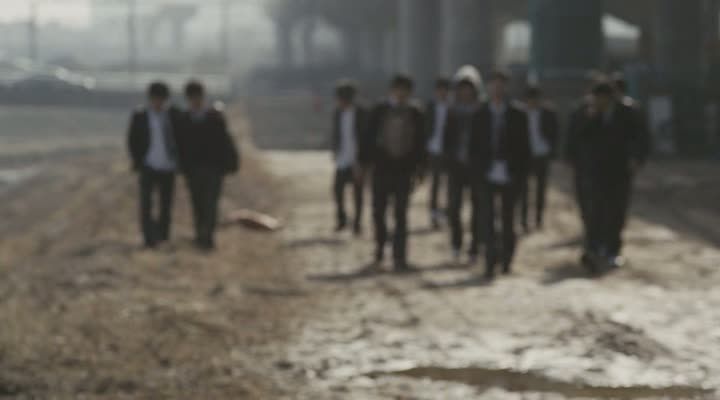
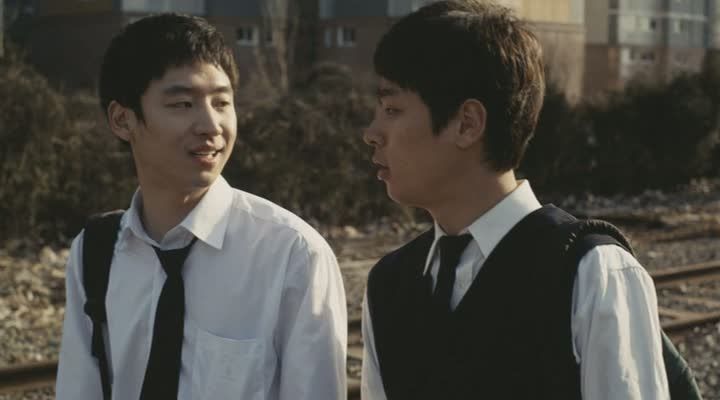
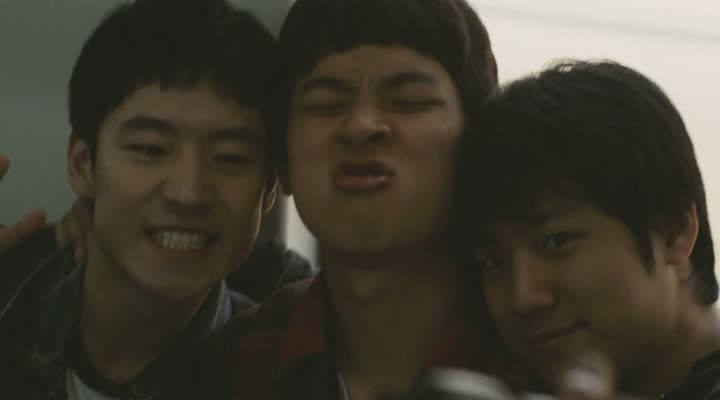
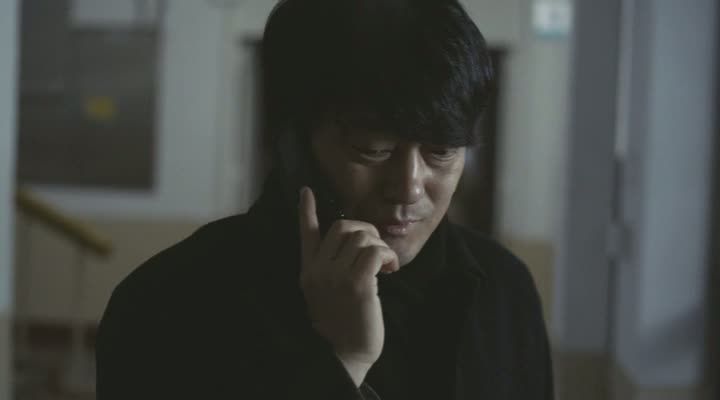
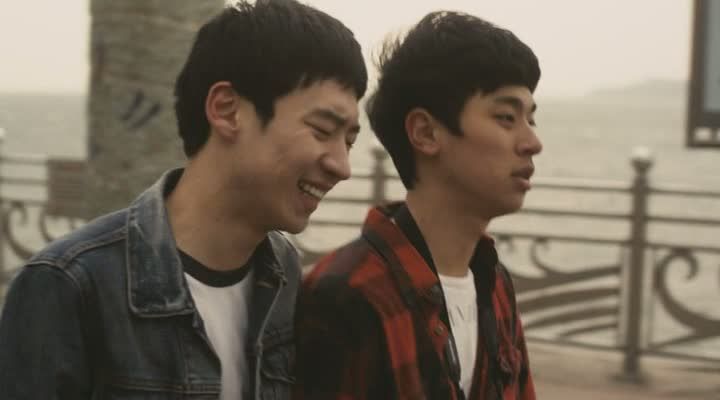
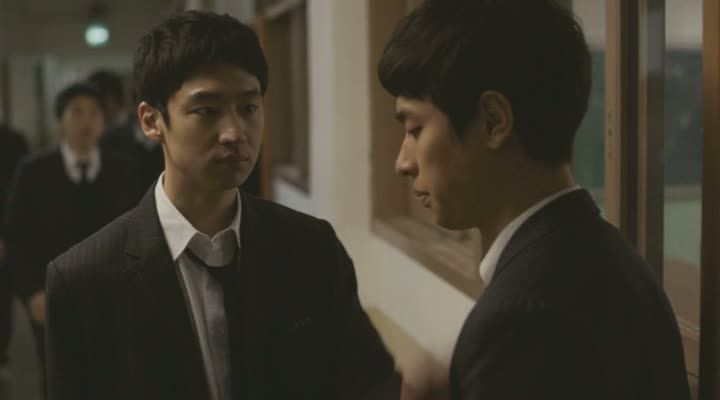
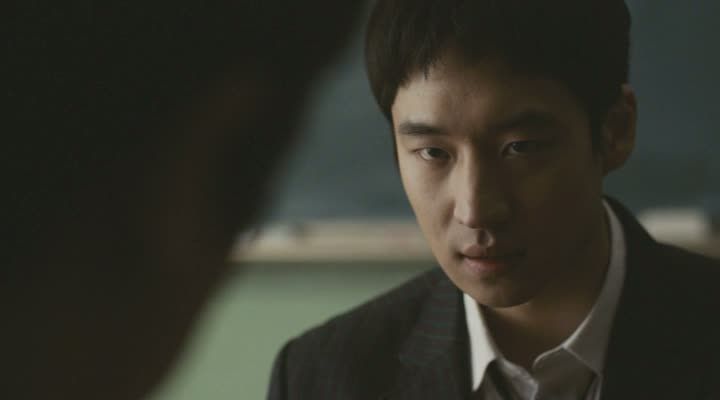
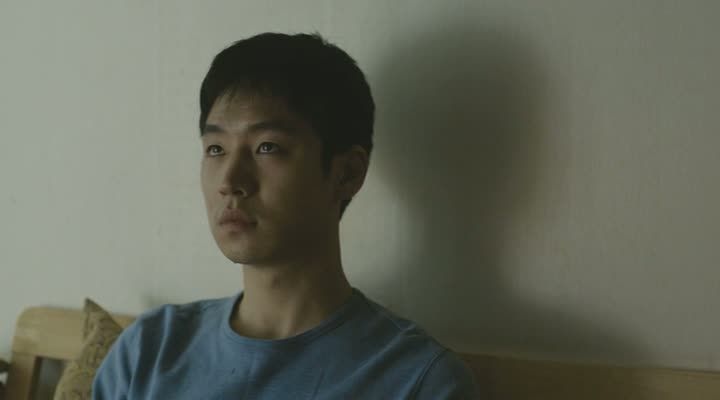
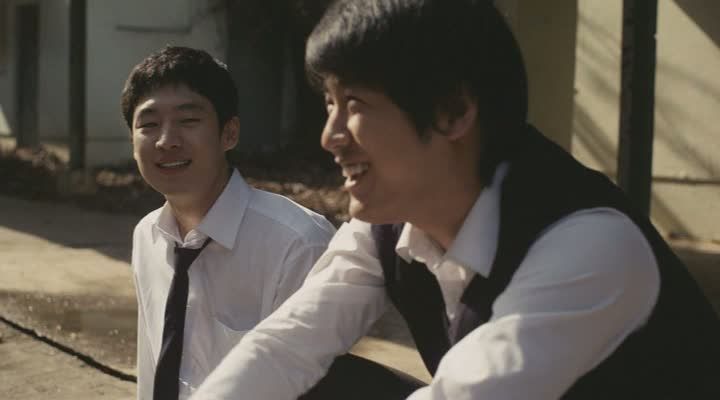
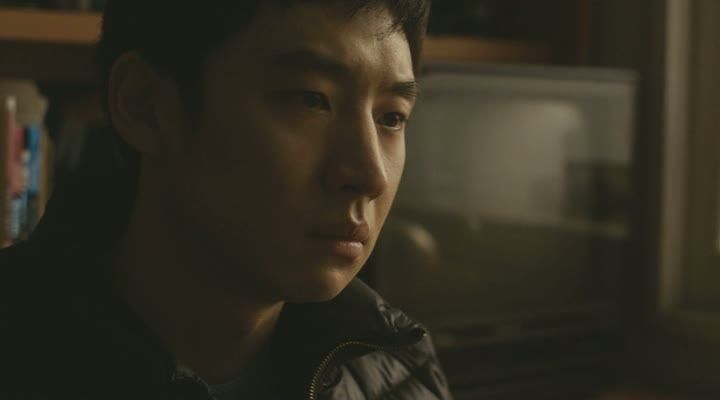
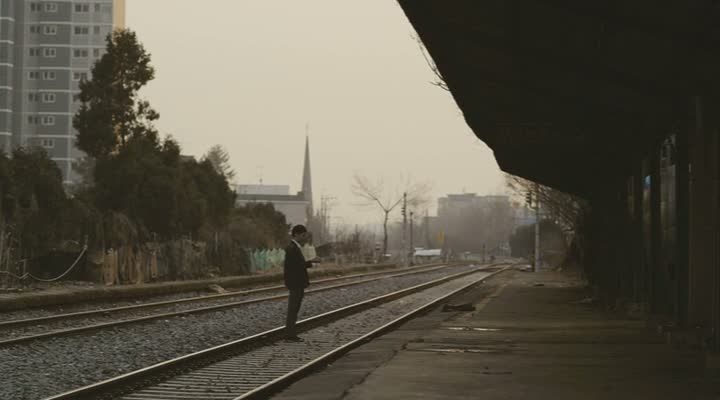
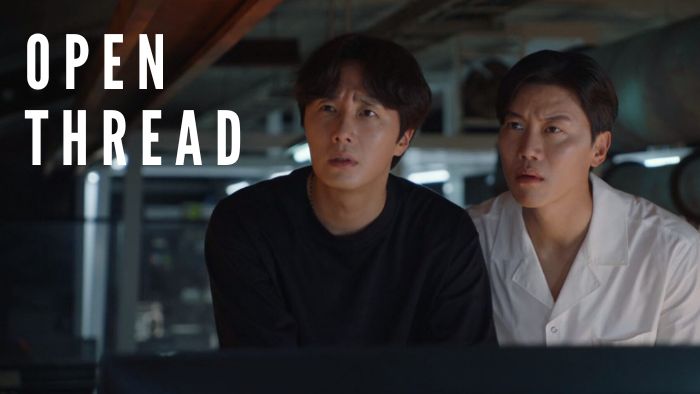
![[Cast Away] A psychometric marries his enemy to foil her plans](https://d263ao8qih4miy.cloudfront.net/wp-content/uploads/2023/09/castaway_header1.png)
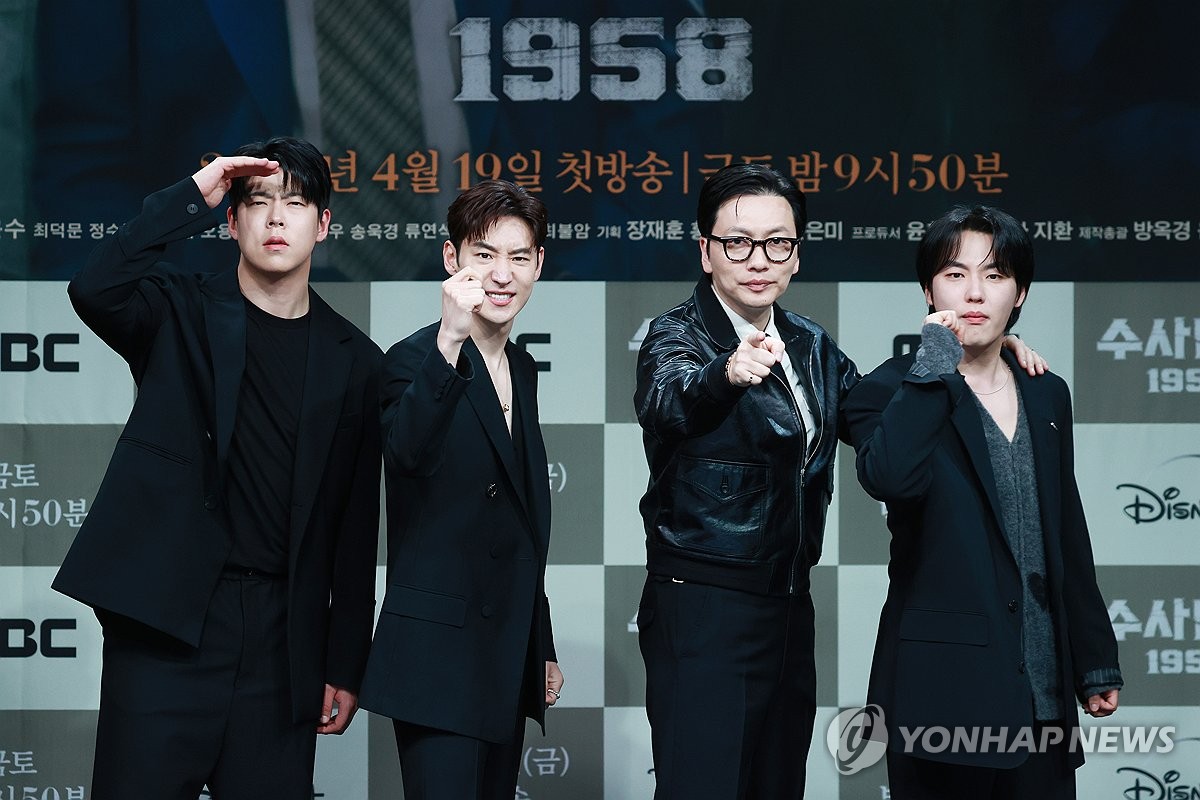

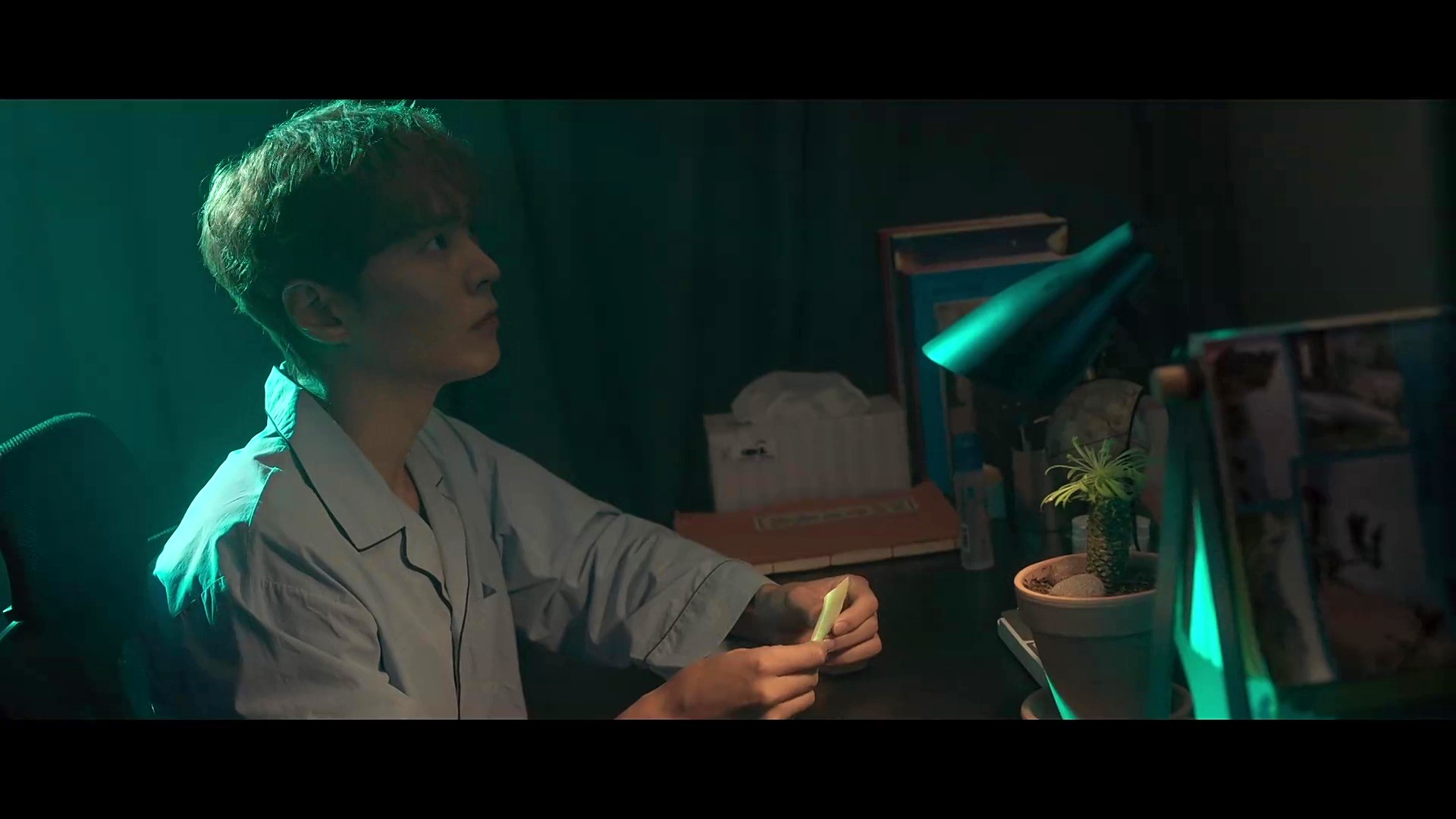
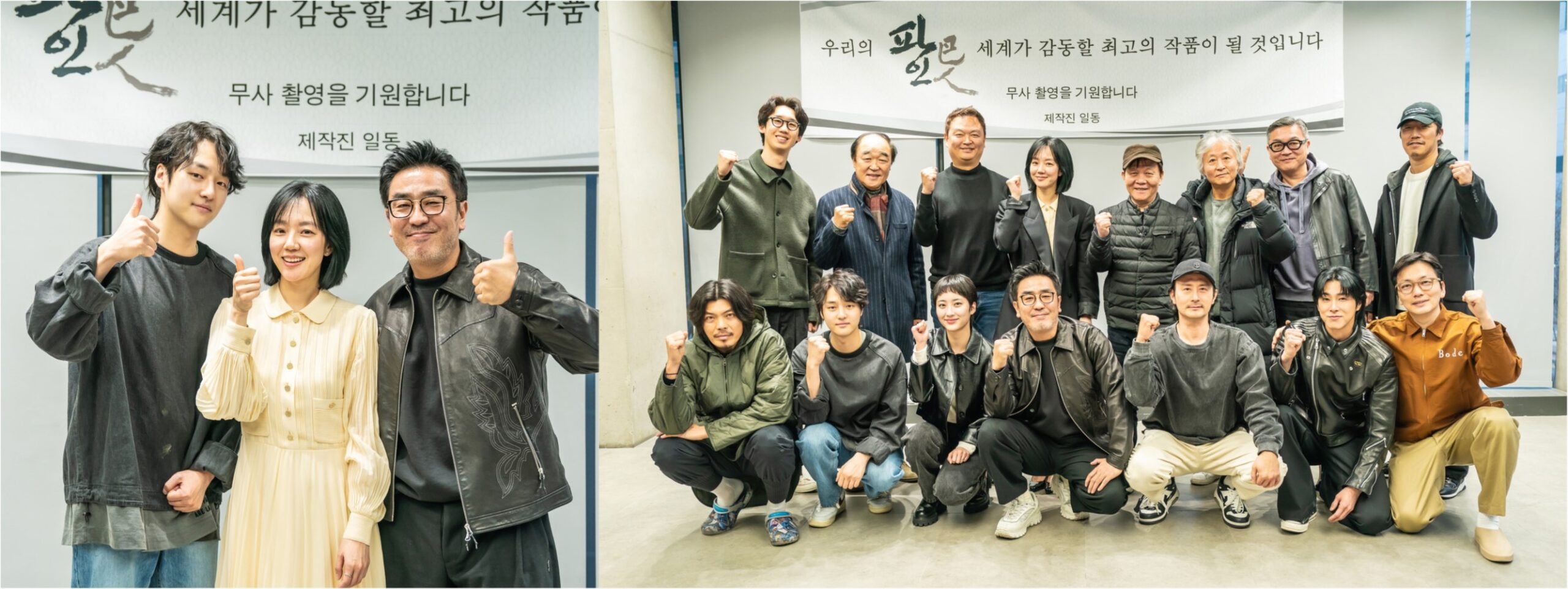
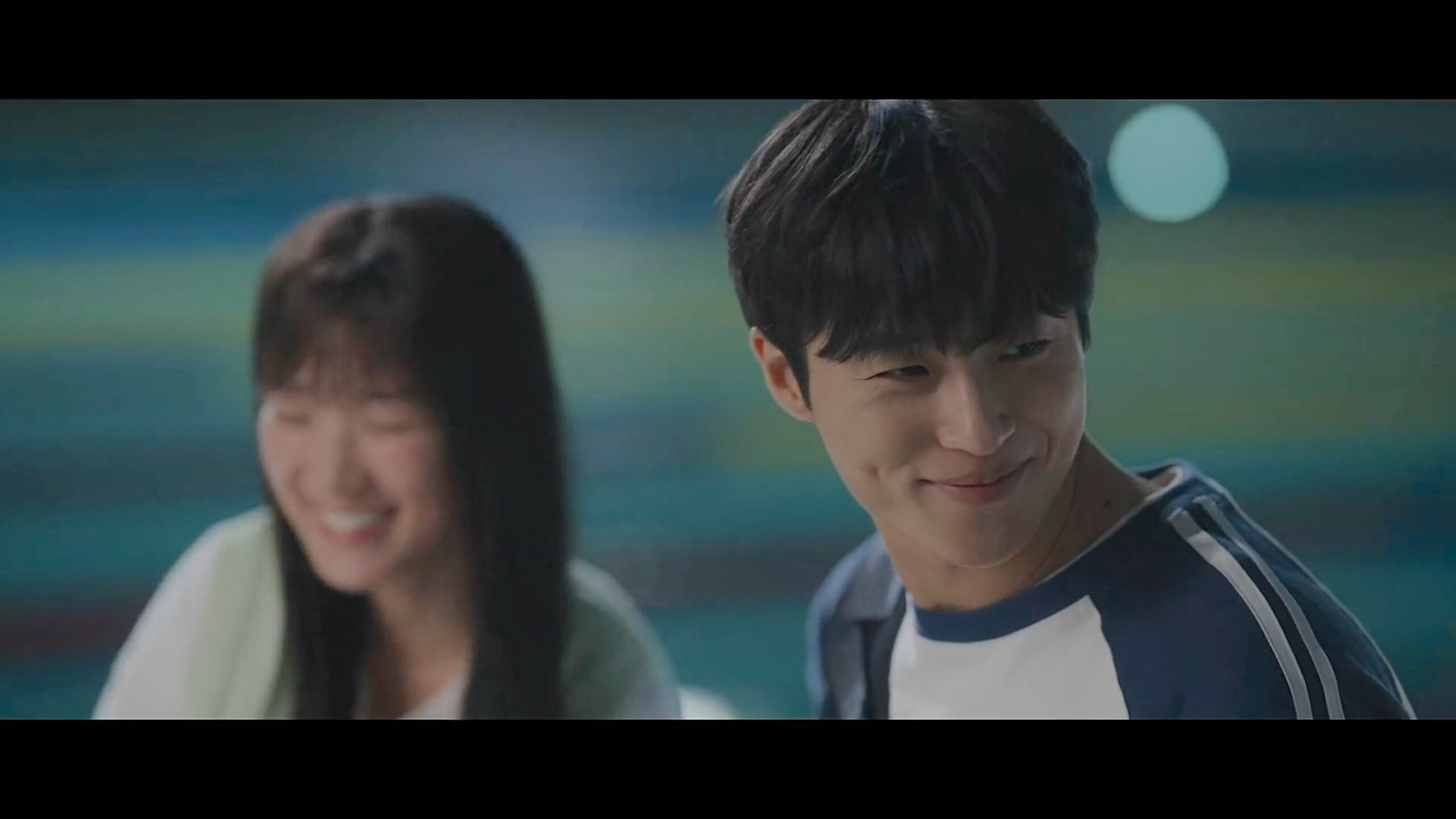
![[Beanie Recs] Dramas about fangirling](https://d263ao8qih4miy.cloudfront.net/wp-content/uploads/2022/05/BeanieRecs.jpg)

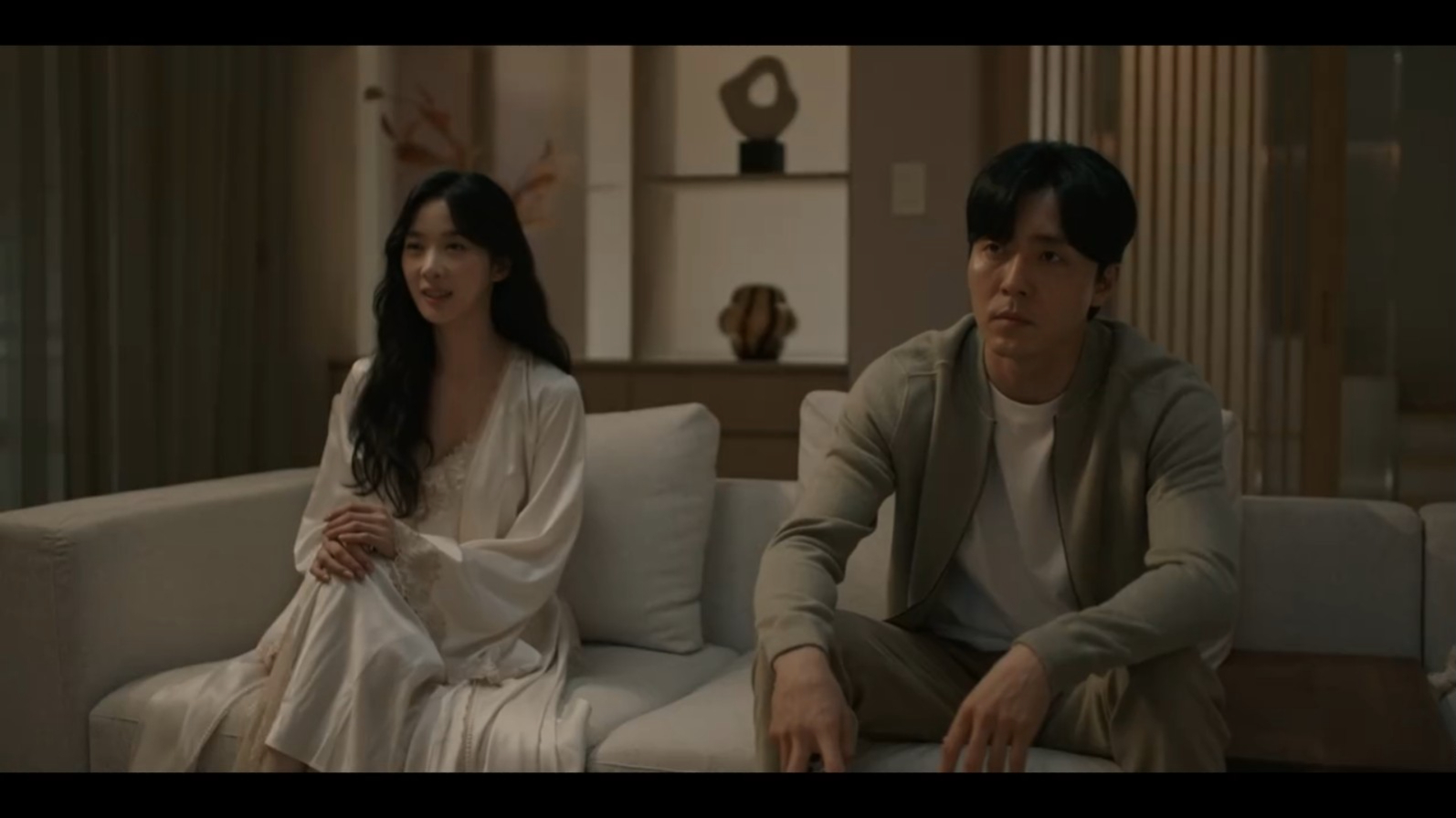
Required fields are marked *
Your email address will not be published. Required fields are marked *
51 Enz
April 24, 2014 at 11:00 AM
I just finished watching this movie and i was sobbing by the end of it. An incredible movie. Really powerful, moving and heartbreaking. I cant beleive this is the director's graduation project. What an amazing piece of work.
Required fields are marked *
52 aly
November 15, 2015 at 3:49 PM
today i'm here again because i had a sudden urge to watch the last part of the movie. i relaised i understand some things i didn't the first time i watched it. like i said, i think i'll always visit your review when i miss this movie because even after all this time, this movie refuses to leave me. i still ache for these characters. it's honestly so close to my heart. i don't see you do movie reviews as much anymore on here. just know they are missed.
Required fields are marked *
53 Rie
March 28, 2016 at 3:56 AM
I finally watched the movie and really enjoyed reading your review. Thank you ! Lee Jehoon's next movie Hong Gil Dong will be released in May and he will reunite with Bleak Night's director for a new movie this year. Director Yoon said he wrote the new movie for Lee Jehoon :) really I can't wait to see that !!!!
Required fields are marked *
54 lesssugar
May 20, 2017 at 10:39 AM
can anyone tell where can i watch this?
Required fields are marked *
55 Jasumin
August 21, 2018 at 10:18 PM
Hi! i love watching kdramas/movie and I am fan of your page.
I've seen Bleak Night only last night. (thru Summer in my hometown)
It's better late than never.
Required fields are marked *
56 Mahta
June 7, 2019 at 6:50 AM
such a well-written and thorough review, THANKS.
Required fields are marked *